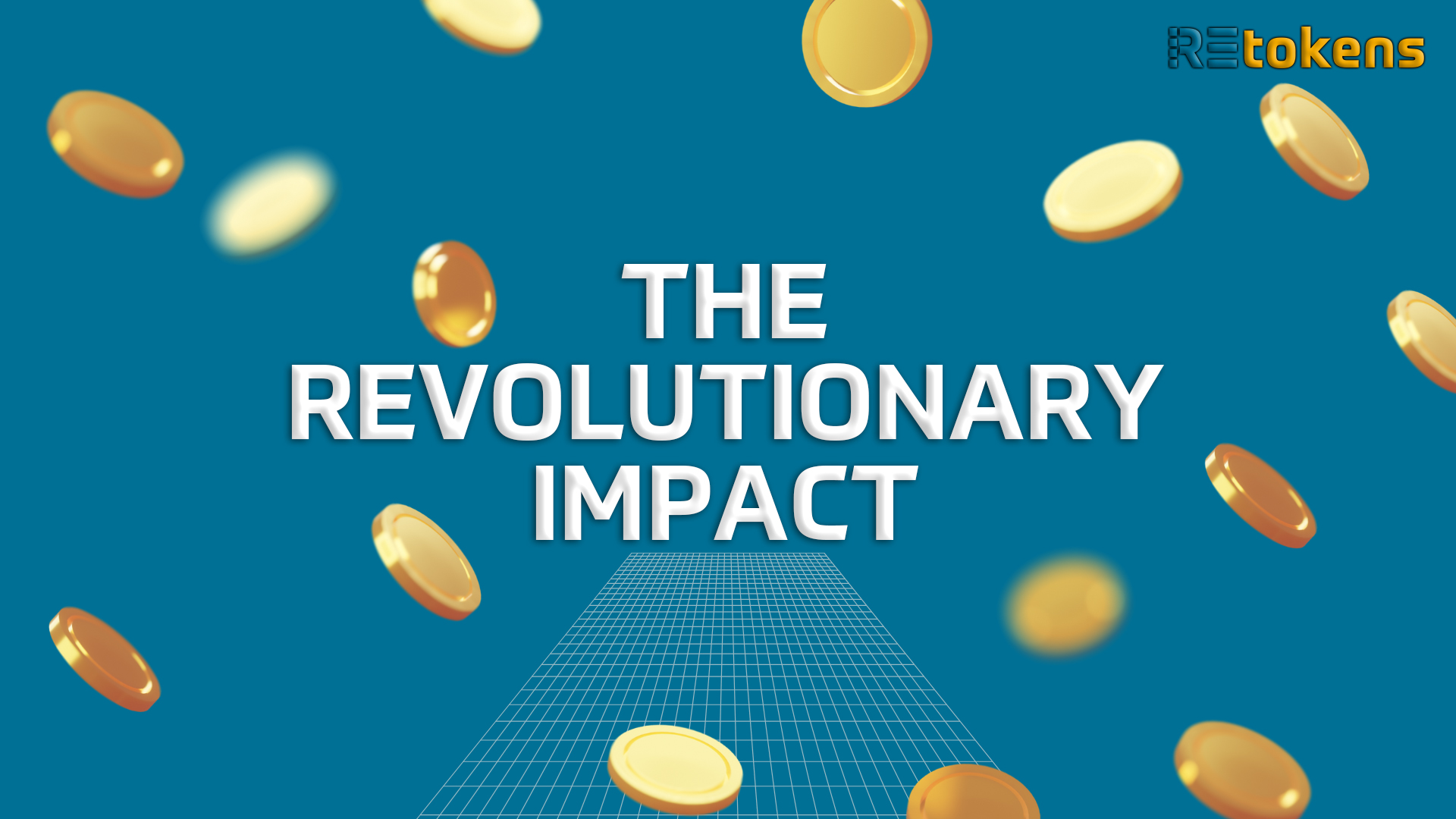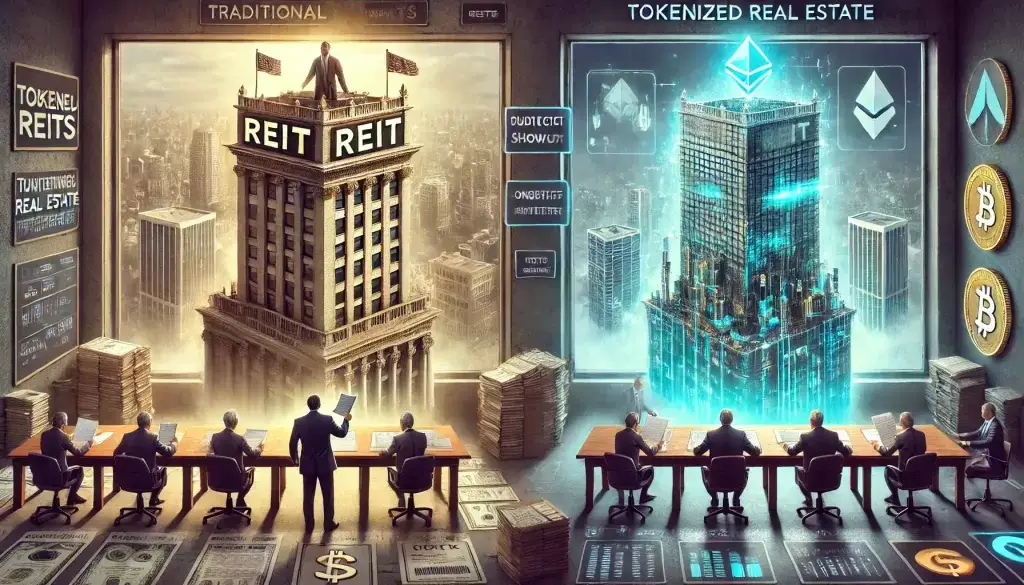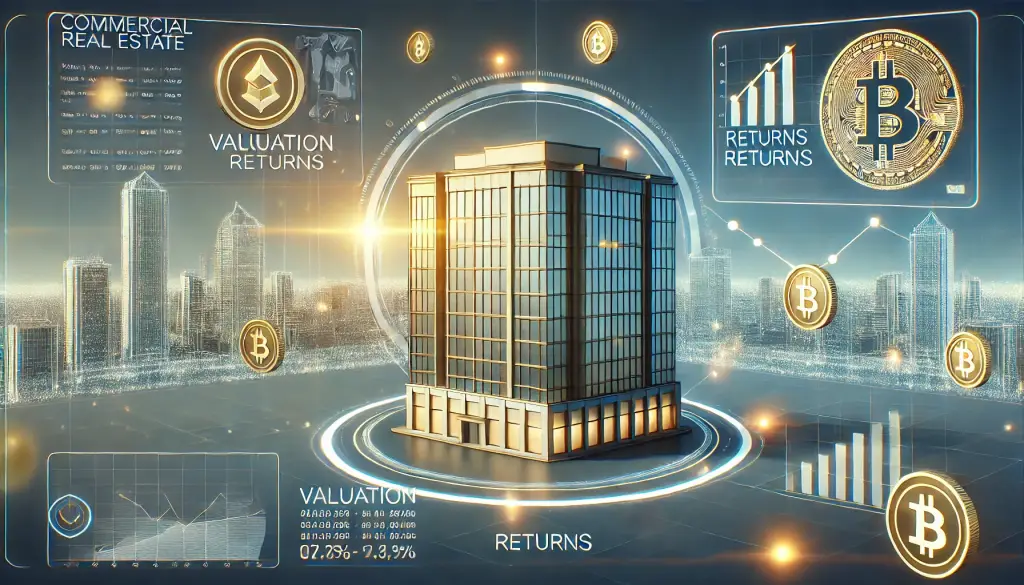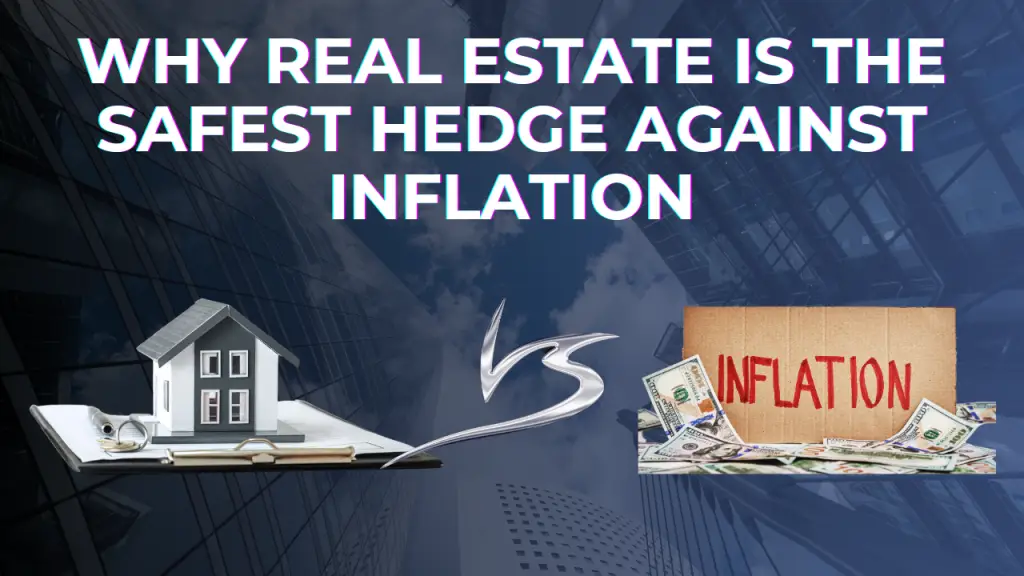Tokenization
If you’re not familiar with the term “Tokenization” or perhaps it sounds funny to you when describing a real estate investment, then consider thinking about it as a digital asset, which it is.
Digital assets are digital securities/tokens
Digital assets, also known as digital securities or digital tokens, are representations of ownership or proof of a financial asset or non-financial asset, such as real estate, art, or even a collectible, that are recorded on a blockchain. Tokenization is the process of converting these assets into digital form, often through the issuance of a unique digital “token” that represents ownership or proof of the asset.
Easily transferable and divisible
One of the key benefits of digital assets is that they are easily transferable and divisible, making them highly liquid. This allows for more efficient and cost-effective trading, as well as the ability to fractionally own and invest in assets like real estate that have been previously difficult and expensive to access. For example, tokenization of real estate allows for fractional ownership, enabling investors to invest in a portion of a property rather than having to purchase the entire asset. This is real ownership, with all the real benefits of real estate ownership, unlike a REIT or Real Estate Investment Trust where you just share in the cash flows.
Security Token Offerings (STO’s)
Often people group STO’s or Security Token Offerings in the same box as cryptocurrency. Although this may technically be true, they are very different. Security tokens, often built on blockchain technology, can be exchanged on decentralized platforms. However, unlike other types of cryptocurrencies such as Bitcoin or Ethereum, security tokens represent ownership in a real-world asset, such as stock in a company or real estate. They are subject to securities regulations, which of course vary depending on the jurisdiction your operating in. In this article I will use “real estate tokens” and “real estate STO’s” interchangeably.
Why Real Estate Security Token Offerings (STOs) are not the Same as Cryptocurrency
My argument for Why real estate security token offerings (STOs) are not the same as cryptocurrency is this:
- Real estate tokens represent ownership in a tangible asset: Unlike “other cryptocurrencies” such as Bitcoin or Ethereum, real estate tokens represent ownership in a physical asset, in this case, real estate. This is a major difference between real estate STOs and traditional cryptocurrencies.
- Real estate tokens are subject to securities regulations: Real estate STOs are considered securities and are subject to securities regulations. This of course means they must comply with laws and regulations related to securities and investment, in the US that is the SEC or Securities and Exchange Commission. This has not been the behavior for traditional cryptocurrencies and why they are now under the microscope for SEC violations with major cases like the crypto exchange FTX and the SEC’s case against cryptocurrency Ripple (XRP).
- STOs are not currently used as a medium of exchange: The primary use case for traditional cryptocurrencies is as a medium of exchange, meaning they are primarily used for buying and selling goods and services, often calling the cryptocurrency a “utility token”, meaning it has a utility versus ownership like an STO. Real estate tokens are used primarily as a way to invest in and gain ownership in a specific real estate property, not as a medium of exchange.
- Real estate STOs do not have the same level of decentralization as traditional cryptocurrency: While real estate STOs are built on blockchain technology, they are not fully decentralized like traditional cryptocurrency, since they are subject to the securities regulations I have mentioned and government oversight, which limits the degree of decentralization for those not wanting to try and side step the law, like me!
Real Estate STOs
While real estate STOs share some similarities with traditional cryptocurrencies, they differ significantly in terms of what they represent, their regulatory environment, and their primary use case. So, for investment purposes, real estate tokens are not considered true cryptocurrency.
Smart Contracts
Okay, let’s switch gears back to the 5,000-foot view of digital assets and talk about another revolutionary feature, “smart contracts”. Digital assets can be programmed with “smart contracts”, which are self-executing contracts with the terms of the agreement written into the code, key word being “code”. This allows for seamless automation of functions such as the transfer of ownership and the distribution of dividends or other income.
As exciting as smart contracts are for digital asset nerds like me, we know it’s not all sunshine and rainbows out there. Lots of news headlines about digital assets lately, and rightfully so. One of the main concerns is regulatory compliance, which we just talked a lot about regarding real estate tokens and STO’s. Many governments are still figuring out how to regulate digital assets and tokenization, and there is currently a lack of consistency across jurisdictions of different countries. This makes it difficult for businesses and investors to operate in this space because they may not be aware of or compliant with all relevant laws and regulations. In fact, I would argue that most are not.
Why cryptocurrencies can have risks related to security and fraud
This means digital assets, specifically cryptocurrencies, have some potential risks related to security and fraud. Look no further than Sam Bankman Fried (SBF) and his exchange FTX as the most recent large case. In large and done correctly, blockchain technology actually provides safety. Public blockchain is designed to be a “trustless system”, meaning you don’t have to trust the party that you are transacting with because all of the information is on a public blockchain for the world to see. The smart contracts mentioned above are just computer code with a “if you do this, than that happens” automation.
Two guys walk into a virtual store with their virtual wallets…
I’ll explain it this way: Let’s say you have a digital asset like Bitcoin (yes you can do this with American fiat dollars by purchasing “stable coins” pegged to the dollar or other cryptocurrency on many platforms, including the platform REtokens customers use to manage the real estate tokens) and someone else has real estate that they have tokenized. Imagine you both walk into this “virtual store” (platform) with your electronic wallets. Your assets are in your electronic wallet. You would give your Bitcoin in this example, to the storekeeper (which is just computer code). The other party selling the digital real estate (tokens, STO’s) also give their digital asset to the storekeeper. The storekeeper has a “smart contract” agreement between the two of you that says if you put in X amount of Bitcoin and the other party puts in X amount of real estate tokens, the storekeeper will put the real estate tokens in your electronic wallet and the Bitcoin in theirs. You now have your real estate ownership within seconds without paying a real estate broker and leave the store. If one party does not give the shop keeper the agreed compensation or trade amount, the storekeeper (remember just computer code, no personal bias or influence) simply terminates the contract and returns your digital assets to you.
I will say smart contracts can get complicated and there are quality differences that really need to be paid attention to for safety and security. That is why at Retokens we have chosen to work on a “purpose built blockchain” where many of the “STO rules/operations are built into what is called the “layer one” or the blockchain itself. This is different that say Ethereum which is a fantastic “general purpose blockchain” but you need a lot of sticky smart contract work to make it safe and secure for STO’s.
Digital Assets are the Certain Future
Despite these concerns, the use of digital assets and tokenization is the certain future, and the potential benefits of these technologies are significant. The tokenization of assets is expected to open up new markets and investment opportunities, making it possible to invest in a wider range of assets in a more efficient and cost-effective way.
Overall, digital assets and tokenization will revolutionize the way we invest in and trade assets, providing more efficient and cost-effective solutions. However, it is important that businesses and investors in this space are aware of the potential risks and regulatory uncertainties, and take the necessary steps to comply with all relevant laws and regulations to make sure their customers are safe. Like the example I used above of Retokens using a purpose built blockchain for better built for the world of regulation, safety and security versus the general purpose blockchain that developers built all sorts of “Web 3” applications on. With the proper approach, digital assets and tokenization can become a valuable addition to the global financial system and we are creating the path!
By: Tyler Vinson, CEO REtokens




